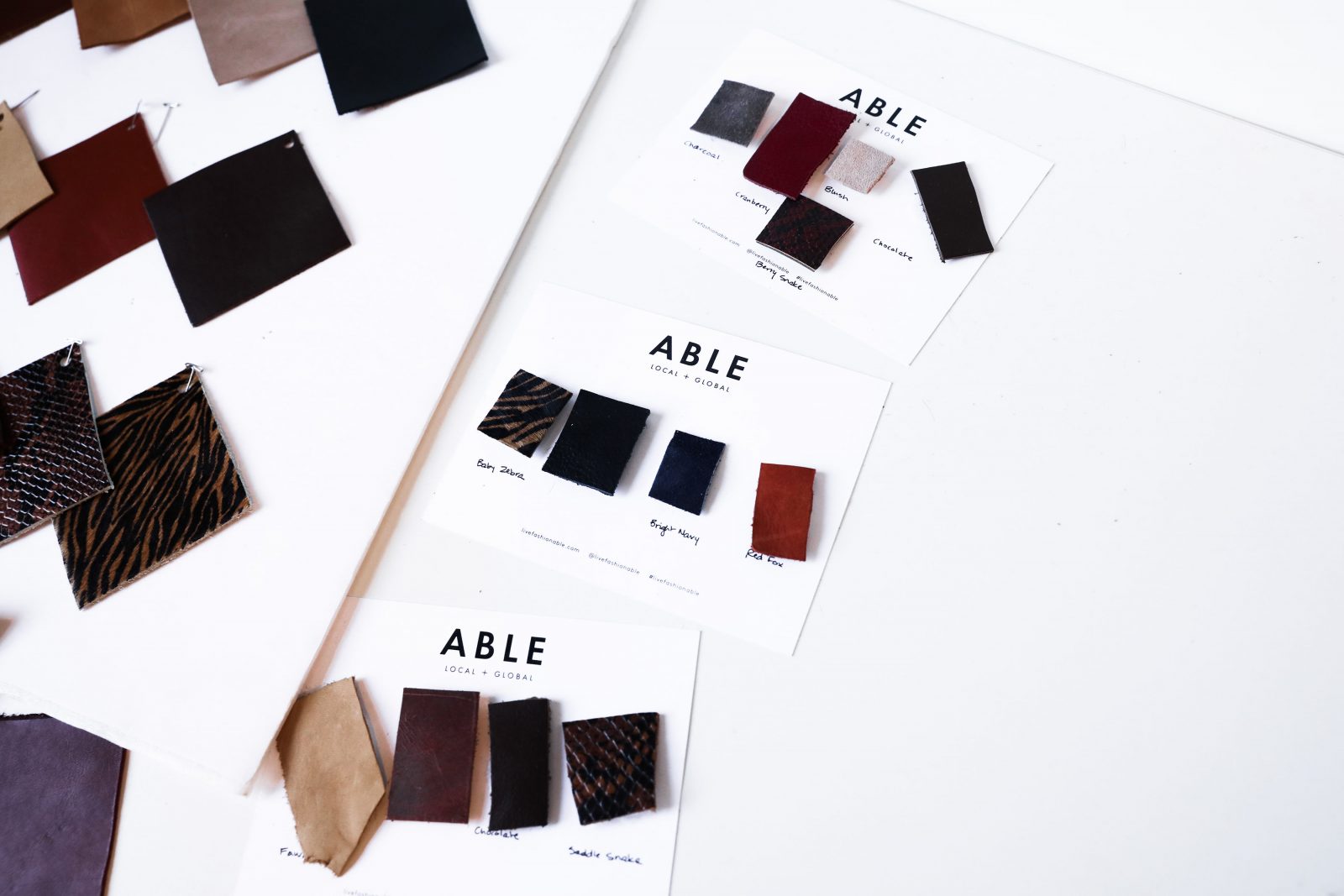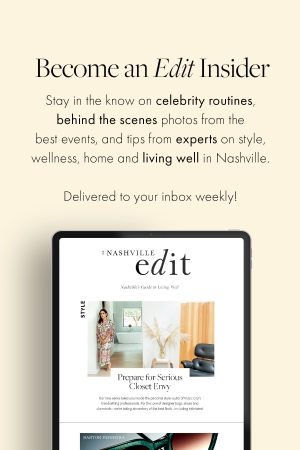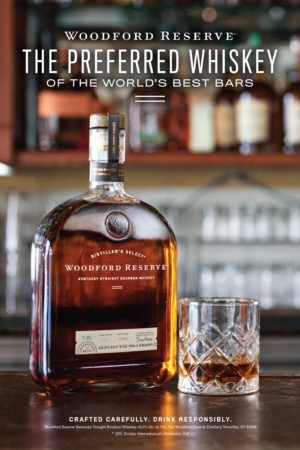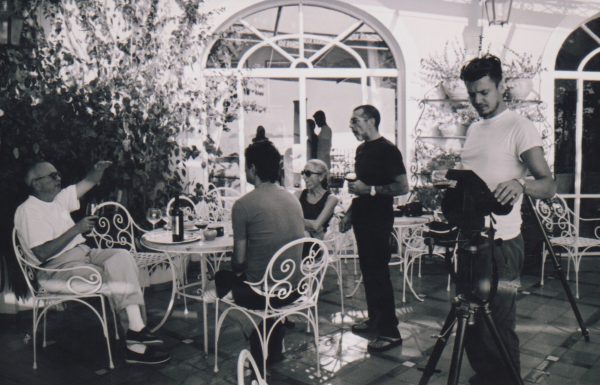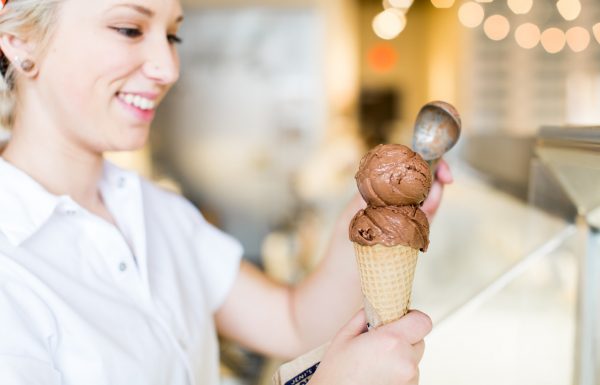It all began with a mission trip.
Barrett Ward landed in Peru on a mission trip days after buying his dream car: a Lexus with a price tag of $300,000, an amount that could have paid for 300 houses in the area he was visiting. On this trip, he watched a young girl walk out of a tin shed, grab dirty water, and drink it. He remembers thinking, “How could a girl so beautiful be living in so much poverty?” He was struck by the shallowness of his mindset, realizing that he equated beauty with money.
Growing up in a middle-class family in Carmel, an affluent suburb of Indianapolis, he assumed that being wealthy someday would make him happy, too. He had only ever seen images of poverty on television, safely removed, and impersonal. He became a salesman and developed an obsession with money. Yet, in Peru, as he stood toe-to-toe with that little girl, he found himself unable to look away.
Instead of wallowing in his privilege and guilt, he took action.
Only a few days after he returned home, he walked into his boss’s office and quit, unable to go back to his old life. He decided instead to figure out his next move while traveling, searching for a way to use his skills and time for the greater good. He contacted a former colleague who did frequent mission work in Ethiopia and asked if he could tag along on the next trip. Upon arrival, Ward knew he had found his destiny in the East African country. “I felt alive there because life is less demanding and more about being in the present moment,” he says. He was struck by the way that people were joyful regardless of circumstances. After that first trip, Ward became addicted to his visits to Ethiopia, returning every three months.
Back in Nashville and running his first nonprofit, Barrett met his wife, Rachel, who worked in the adoption space. After the couple married in 2007, they moved to Ethiopia for Rachel’s job — a decision the newlyweds were actively advised against but felt called to nonetheless. Not long after arriving in the capital city of Addis Ababa, Ward remembers rounding Victory Road and being greeted by a gaggle of girls sitting on a concrete wall. He initially assumed they were a friendly group of teenagers, but reality set in when he learned the women were a part of the sex slavery industry, either by force or out of necessity. Just like that first little girl in Peru, he couldn’t turn away.
From there, he and Rachel connected with a rehabilitation group that provided therapy and medical care to sex trafficking survivors. They explained that the women needed a skill post-treatment — without work, they would return to prostitution to make rent. Ever the pragmatist, Ward asked what kind of product they would want to make.
ABLE Nashville was born
The resounding reply? Scarves. ABLE (initially called FashionABLE) launched with just three Ethiopian women making three different styles of scarves. Sales exploded when actress Minka Kelly, best known for her role on NBC drama “Friday Night Lights,” made a PSA video about the product. 4,123 scarves were sold in just two months. As the company has grown and changed, though, ABLE’s true success has always come from collaborating with locals. The company makes products indigenous to the countries with which it partners and uses on-the-ground teams to recruit makers discreetly.
Winning over these rightfully skeptical women wasn’t easy. Ward recognized that if pimps saw the at-risk women talking to someone who could help their situation, the women would end up punished. ABLE committed to a subtle recruitment method, passing out cards and allowing the women to come to them. Most often, interested women reached out after realizing that ABLE offered a legitimate escape.
Ward’s primary goal was to make sure the women never felt shamed or judged, knowing their involvement with ABLE signified their desire for dignified work. He believes that providing people with jobs is a better solution to poverty than straight charity. “What these women really want is to stand on their own two feet,” he says. One-on-one time with the women taught him this lesson, ultimately transforming his company.
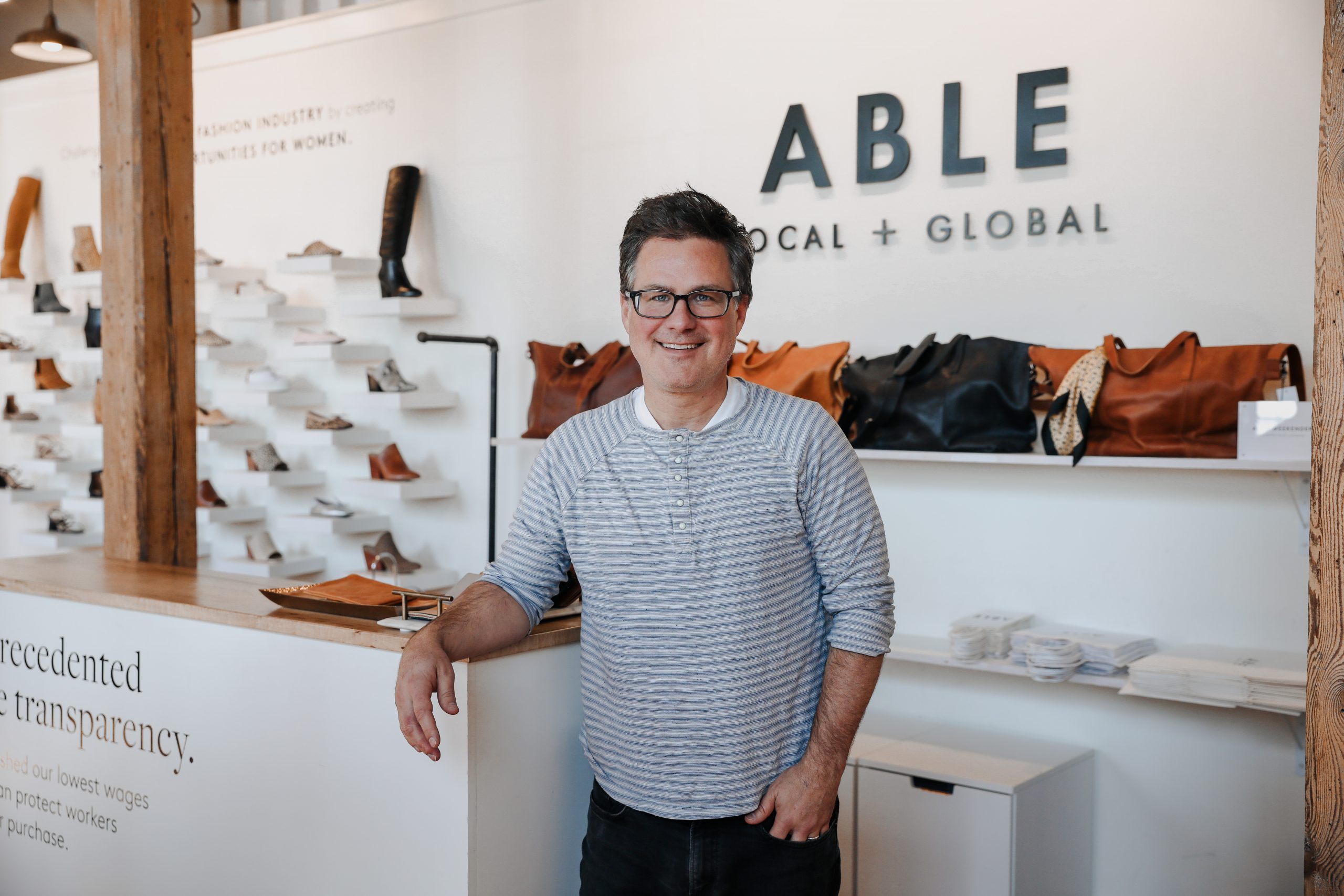
ABLE Nashville’s Continued growth:
As ABLE continues to scale, Ward comes back to the stories of the women they have helped, like a woman whose son became the top student in his first-grade class only a few years after the two were sleeping in front of a church at night in a period of homelessness. Hearing these stories reminds him how lucky he has been to attract the right customer base. He insists that he never had big ambitions for ABLE and is still amazed by the growth. He attributes the company’s success to the fact that customers believe in ABLE’s tangible solution to poverty and know that every purchase makes a difference.
After guiding ABLE through the initial growing pains of explosive growth, Ward started to wonder how the company could have an even greater impact on the fashion industry as a whole. He couldn’t live knowing that 98% of workers in the fashion world (75-80% of which are women) cannot make ends meet. He felt hypocritical participating in an industry built on the backs of people working twelve-hour days six days a week. And so, in true fashion, the rebel responded.
In 2018, ABLE implemented the accountABLE Report, a program publishing the company’s lowest wages. This audit was born of a desire to be transparent and give customers data points and conscious decision-making power. While Ward didn’t sleep for a week before the campaign launched, it was met with great enthusiasm — by admitting that the company still had a long way to go, ABLE gained greater customer loyalty. In ten years, he would like to see similar tags on every piece of clothing that specify the hourly rate of the person that made the item. He realizes that most consumers don’t have the time to learn about third-world wages and tries to present information in a palatable way. He hopes that similar consumer movements will yield higher pay for workers at the bottoms of company totem poles.
Auditing Women’s Working Conditions
When ABLE grew from 20 women in Ethiopia to 200 in various communities around the world, it became impossible to have a close eye on all working conditions. Ward began assessing different manufacturing audits and realized he didn’t fully trust any of them. To ensure his supply chain was safe and offering proper working conditions, he created the accountABLE Audit. While Ward was disheartened to learn about one particularly oppressive work environment in Ethiopia, the positive thinker also saw it as an opportunity to correct the situation at hand. Like publishing wages, the audits are a step forward, not an immediate solution.
As the ABLE team has grown from one employee to 90 (87 of which are female) and found its home in a West Nashville complex — complete with offices, design studios, and a shipping center — the mission is still top of mind. It is scribbled on whiteboards, framed on walls, and woven into every discussion. Ward still tries to find time with his makers, listening to their stories, and looking them in the eyes. Recently, one maker shared that she was celebrating her first year of sobriety, reminding Ward to stay focused on the small, instead of stories that might be better suited for a press release.
“It’s insane to think that someone’s suffering should just serve to make me feel more grateful for what I have,” he says, referencing a culture that posts exploitative photos of impoverished areas with self-serving hashtags. “Instead I saw what I saw, felt very uncomfortable, and then asked myself — but what can I do about this?”
The day I sit in conversation with Barrett Ward, he laughs loudly when I make an offhand comment referring to him as a saint. He suddenly jumps up and extends his arm, encouraging me to try and pull him back. “Do you see that it is easier to pull someone down into the darkness than it is to go into the light?” he asks. I tell him I do, and that I know this from my own experience. He smiles. “I am allowing myself to enjoy being more in the light.”
What’s New From Able Nashville:
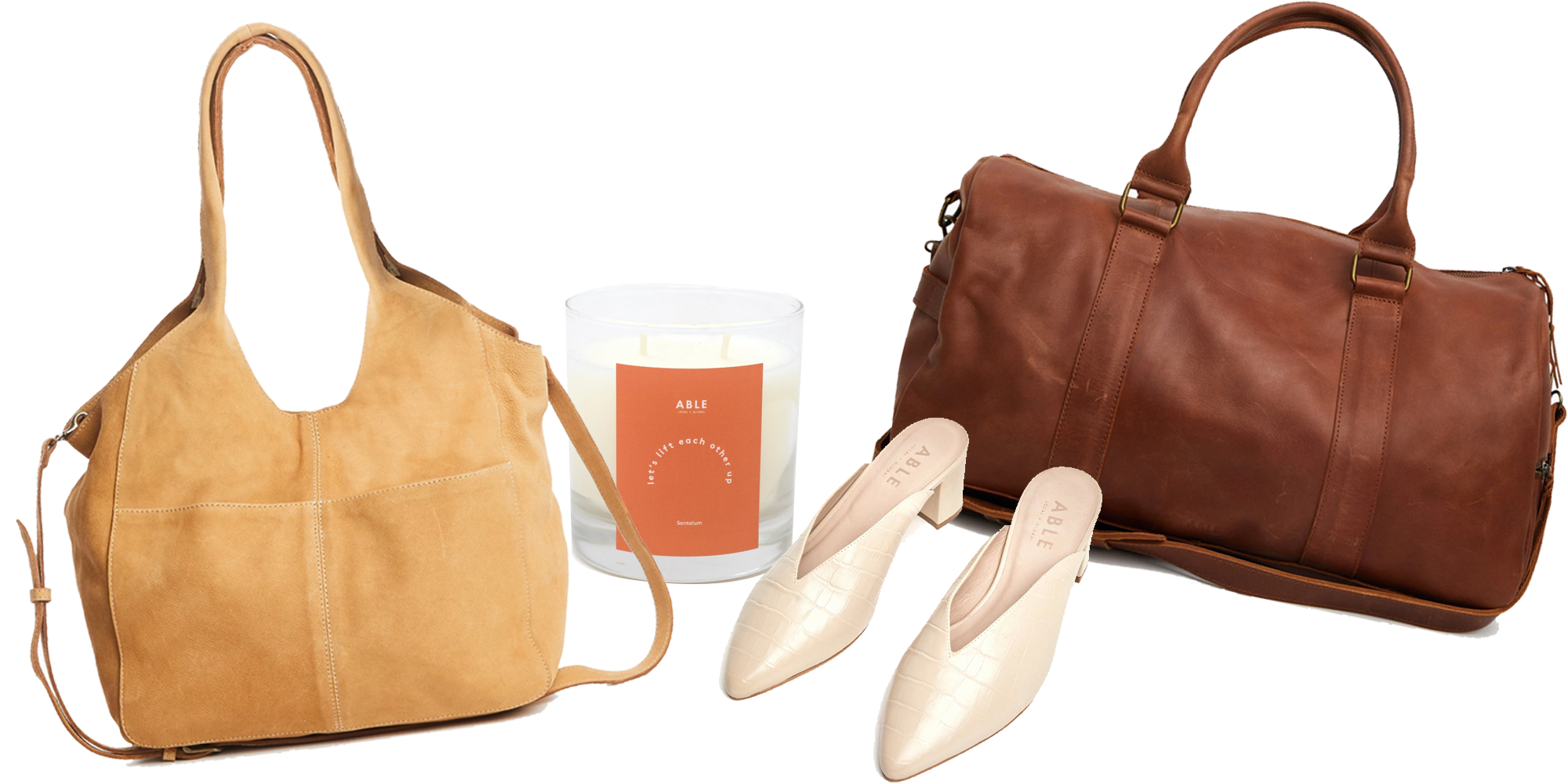
ABLE | Nashville Location
5022 Centennial Blvd
Nashville, TN 37209
(615) 250-7216

